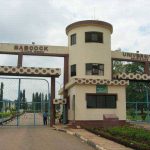The Northern Superhighway Project, envisioned as a beacon of hope for socio-economic development in Cross River State, has instead become a source of despair for many residents. Initiated in 2016 by Senator Ben Ayade’s administration, this ambitious 145-kilometre road project has led to the destruction of homes, farmlands, and livelihoods, with many affected individuals receiving inadequate or no compensation.
This investigation by Archibong Jeremiah uncovers the devastating human cost of a project plagued by diversions, abandonment, and a shocking disregard for the well-being of the communities it was meant to serve.
In 2012, Adie Sunday Atennor, a father of six living in Betukwel village, Obudu local government area of Cross River State, began constructing his permanent residence on land inherited from his father and forefathers. By 2015, he had completed the damp proof course (DPC) for his eight-room building with a parlour and hoped to continue work on it later. He had created a relaxing spot on his land and planted cocoa, bush mangoes, and oil palm trees, just like his neighbours.
“I spent about two years gathering sand and moulding blocks. After finishing the DPC, I planned to gradually continue building as I could manage it through my farming. After the harvest, I would have money to continue,” Adie told TheInvestigator, sounding unhappy. However, he and over a dozen of his neighbours were unaware that a 145-kilometre road project initiated by Senator Ben Ayade’s administration would ultimately cost them their farmlands and means of livelihood.
On October 16, 2016, a year after Adie paused his building project to raise funds from the sale of his cocoa, bush mangoes, and oil palm trees, the Ministry of Works contracted Sydney Construction Limited to dualise the Mfom-Okpoma-Okuku-Ogoja-Abuochiche-Obudu-Ranch road for a total cost of N31,750,917,525.81. The contract was set to last from October 17, 2016, to October 28, 2019. This road, also known as the Northern Superhighway, connects the five local governments in the northern senatorial district: Yala, Ogoja, Bekwarra, Obudu, and Obanliku.
Work commenced at the Sankwala junction in Obanliku and progressed toward Obudu town. However, upon exiting Obudu en route to Abuochiche junction in Bekwarra, the contractor faced a significant issue: the late Honourable Paul Adah’s houses were positioned on both lanes of the planned road, and he refused to allow any part of them to be demolished. This resulted in a diversion near Bedia junction, connecting to Bedia road and reopening after his houses. Unfortunately, this diversion caused Adie and his neighbours to lose their farmlands, with no compensation provided, as revealed by TheInvestigator.
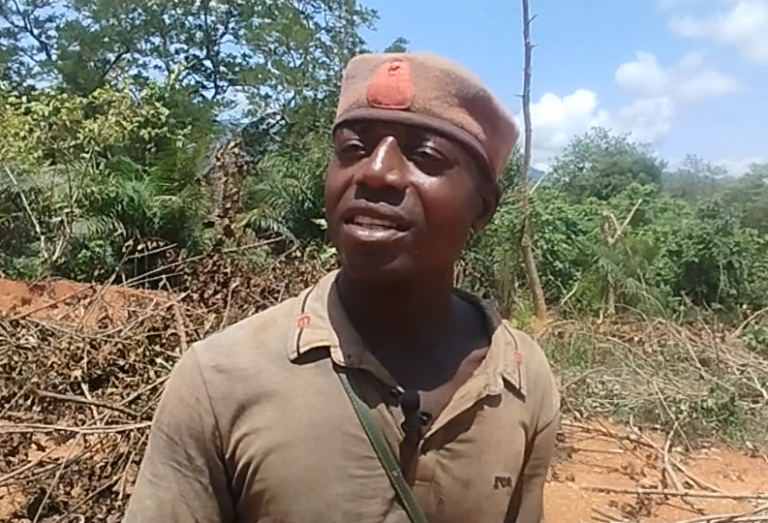
Having crushed Adie’s dream of living in a well-built eight-room home with a parlour and devastating the livelihoods of his neighbours by taking away their land and destroying their crops and properties, Sydney Construction Limited ultimately abandoned the diversion. They reverted to the original road plan, constructing smaller lanes and a road divider to avoid impacting Honourable Adah’s fence.
Upon reaching the Abuochiche junction in the Bekwarra local government area, the contractor encountered a problem similar to one faced in Obudu. The original plan for the road was to pass through Owala, Ubepa, Akwrinyi, Ukpada, Ijibor, and Imaje before ending in Okuku, then continuing to Okpoma and finally reaching Mfom.
However, in Imaje, a landowner whose property was in the road’s path refused to allow the demolition necessary for the project. He demanded 16 million naira in compensation, while the contractor offered him 6 million naira. The governor intervened with an offer of 9 million naira, but the landowner still refused. This disagreement ultimately led to the abandonment of the section of road from Abuochiche to Imaje.
The road was rerouted from Okuku junction to connect with the federal highway at Abakpa junction, and then to Abouchiche junction.
Lost Homes, Lost Hope
Before the arrival of Imaje, demolition had already begun at the Abuochiche junction. TheInvestigator uncovered that those who did not have structures on their land received no compensation, while those with structures were inadequately compensated.
In 2007, Emmanuel Bisong returned home to Abuochiche from Lagos State at his father’s invitation. To keep himself occupied, he decided in 2018 to create a small farm and construct a shop in front of their compound, planting oil palm trees and avocado pears.
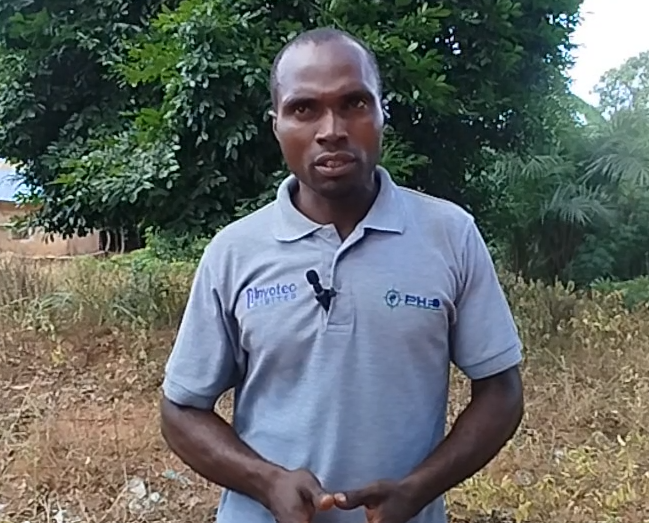
“I was not aware of any road project,” Emmanuel stated. He added, “I didn’t even know when they came to demolish my property. There were four truckloads of sand for another project, but everything was eventually swept away. I had some plants here, but they were all demolished. When I approached the contractor, he informed me that they had marked the road and since there was nothing on my land, they couldn’t compensate me.”
The family of Okie John Ushie Snr lost two properties: one with 10 rooms and another with 8 rooms. “They offered us about 200,000 naira as compensation. My father rejected the money, which is why he decided to pursue the case before he passed away. So, in effect, he was not compensated at all,” Okie John Ushie Jr told TheInvestigator.
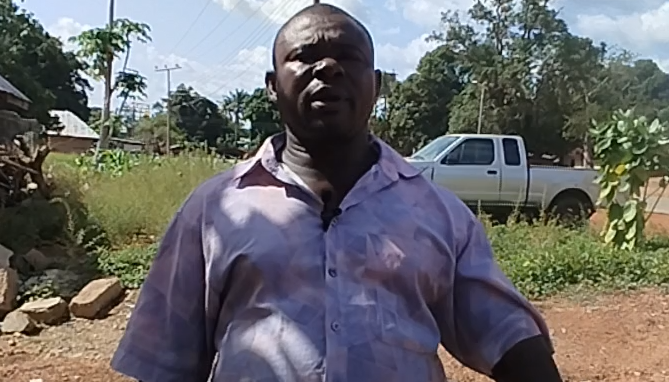
Ushie Simon Ekunke’s family lost a double flat with four bedrooms in each unit. “They offered us a small compensation, which we accepted since it is a government project. Although it wasn’t much compared to the value of the property, we took it out of faith, as it is a common occurrence. They gave us 700,000 naira,” he explained.
Broken Promise
On November 6th, 2016, residents of Yala, Ogoja, Bekwarra, Obudu, and Obanliku lined up for the groundbreaking ceremony of the 145-kilometre northern superhighway.
Governor Ben Ayade, represented by his deputy, Prof Ivara Esu, speaking before cutting the ribbon, described the project as a beacon of hope founded “on a promise of decoupling our people from over-dependence on government because the road is a major infrastructure in the socio-economic development of our State.”
Work stopped on the road two years after the groundbreaking ceremony, and N19,540,668,839.62 had been expended, payment records from Due Process and Price Intelligence Bureaus (DPPIB) reveal.
In January 2019, during the general elections campaign, Governor Ayade used the Mfom-Okpoma-Okuku-Ogoja-Abuochiche-Obudu-Ranch road for his reelection campaign in Yala and Obanliku, promising that in months the road would be completed, referring to the contract deadline – October 28, 2019.
After winning the reelection, Sydney Construction Limited was mobilised on August 8, 2019, with N5,113,104,867.38, and the contractor then returned to the site. However, by December 2019, the contract was abandoned for four years until Ayade left office in 2023.
Nine years later, a vast section of the road has been deteriorating due to the substandard work done in some parts, while a large section remains unattended.
Millions Spent, Lives Lost
Sydney Construction Limited received a total of N24,653,773,707 from the Cross River State government in six instalments between October 2016 and August 2019. However, the quality of the road construction was substandard.
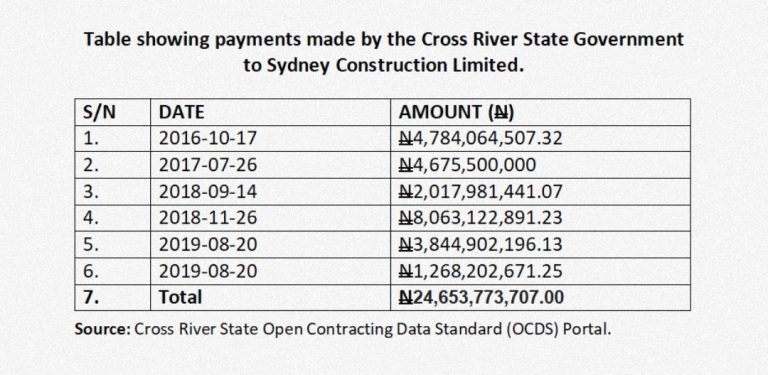
Fieldwork conducted by TheInvestigator revealed that the road construction began at Sankwala junction and extended into Obudu town, but did not reach the ranch as documented in government records. Sections of the road from Utugwang junction to Abuochiche were largely left unworked, and those that were completed have deteriorated significantly. In the Mfom, Okpoma, and Okuku sections, more than half of the work was abandoned. The road divider stopped at Okpoton, while the road construction stopped at Okpodun Okpoma.
The poor condition of the road has resulted in both loss of life and damage to vehicles. Stephen Desmond Agiake, the Calabar Line Chairman for the Obudu chapter of the National Union of Road Transport Workers (NURTW), expressed his concerns about the road’s condition. He told TheInvestigator, “Some parts don’t have drainage, and there are many potholes. When it rains, water collects on the road. If you’re not careful, you might drive into it, which can lead to accidents. It can also damage your tires, wheels, or springs.”

When asked if the poor road condition increases transportation fares, he replied, “It’s not just the road that raises transportation costs; the price of vehicle parts is high, and the cost of living is also increasing.”
In addition to the bad road conditions, he mentioned the numerous checkpoints along the route to Calabar. He said, “The checkpoint from here to Calabar is much and the way they are harassing us. The checkpoint from here to Abuja is not up to 20, but from here to Calabar it is up to 50.”
Stephen also highlighted issues of extortion and harassment by military and police personnel. “An Army officer will sit there and order you to clear your motor park. Even if you try to comply and settle with them, they will harass you. If you give them something, they often claim they have no change and continue to intimidate you.”
According to him, many police officers will accuse passengers of being ‘yahoo boys’ and force drivers to drop them off mid-journey. “When you book from the park, their next of kin knows you booked in this park, and your destination is Calabar, they will tell you on the road to drop the passenger, the family will come and ask you in Calabar.”
In Yala, Odey Friday Ogar, a commercial motorcyclist, reported that the poor road conditions recently claimed the lives of his colleagues.
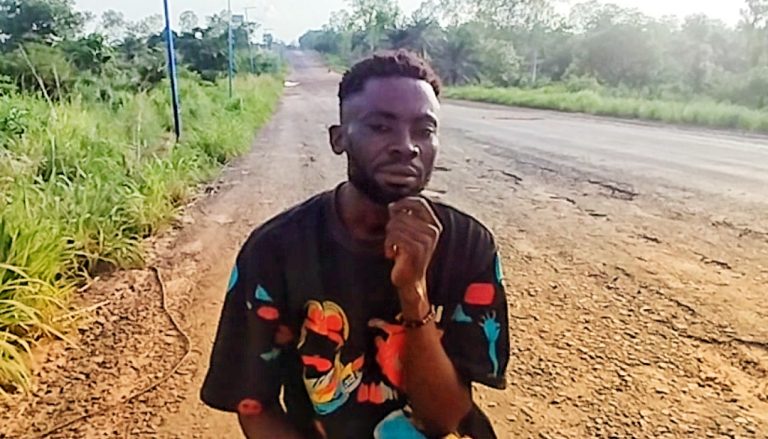
He stated that many people are suffering; the road is terrible in both rainy and dry seasons. Numerous accidents have occurred on this road; “three of my fellow motorcyclists had accidents recently, and we buried them last month.”
Groups Criticise Government
Civic space actors who spoke to TheInvestigator criticised the way the compensation was handled.
Comrade Ogar Emmanuel Oko, Secretary of the Niger Delta Activists Forum (NDAF), described the government’s approach as “careless.” He referred to it as “sheer greed or wickedness,” expressing sadness for the affected individuals who have been cheated and oppressed. “If they ask questions now, it would be seen as an affront to the government, and the government would retaliate against them,” he noted.

Ogar urged the current administration to improve its actions, stating, “The government is there to serve the people, not to victimise them or take from them. The primary responsibility of any government is to serve effectively.” He emphasised that the government cannot claim to develop an area while simultaneously destroying the lives of its residents—such as leading to the loss of ancestral land and negatively impacting cultural identity—without providing adequate compensation. “You are offering people something that is not equivalent to what they had,” he added.
Miss Ukeme Obong, Head of the Cross River State Office for We The People (WTP), also voiced her discontent. According to her, “It is essential for the government to consider the people’s needs when planning certain projects. An environmental impact assessment would have been beneficial. You shouldn’t think for the people; you should think with the people.”
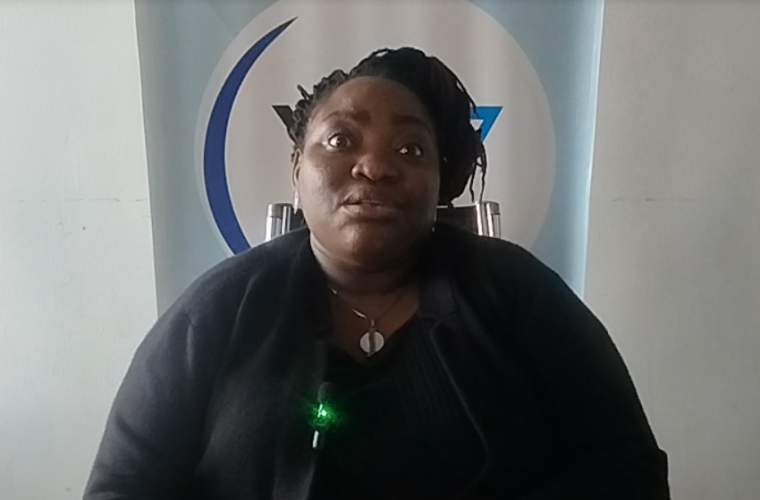
She urged the government to engage with those affected and ensure they receive proper compensation. “It is unfortunate that people have lost their livelihoods, farms, homes, and ancestral lands. This situation does not sit well with me. The road is not even completed, which adds to the sadness of the situation,” she lamented.
Advocating for continuity in governance, Ukeme remarked, “There is no need to reinvent the wheel of governance; it is all about continuity. We need to focus on the continuation of abandoned projects. States that thrive often do so because of a commitment to ongoing efforts.”
Ministries Shift Goal Post On Compensation
The office of the Cross River State Commissioner for Works and Infrastructure, Honourable Pius Ankpo Edet, was visited by TheInvestigator to inquire about the government’s plans for road development and the reasons some individuals have not received compensation. Unfortunately, he was unavailable for comment.
During the visit, TheInvestigator spoke with Dr Desmond Ewa, the Director of Civil Engineering. He mentioned that the contract for the Mfom-Okpoma-Okuku road has been awarded to new contractors. However, Sydney Construction Limited will return to complete the section from Imaje to the Abuochiche junction.
Regarding compensation, Dr Ewa stated, “According to our records, that has been addressed. The Ministry of Lands handled that matter.”
TheInvestigator then visited the Ministry of Lands. In the absence of the Commissioner, Chief Francis Ekpenyong, the Permanent Secretary, ESV Gold Okpo Ita, spoke with the reporter. He referred TheInvestigator to the Director of Lands, Mrs Ene Kepy, who mentioned that she joined the Ministry last year. Upon consulting her predecessor, ESV Samuel Bassey, she learned that the Ministry of Lands did not handle the compensation for the project; the Ministry of Works and Infrastructure managed it.
Sydney Construction Limited is registered with the Corporate Affairs Commission, its registration number is RC 1078141 and Kassis Ziad and Elias Zarkis are directors.
All efforts made to contact them proved abortive. They are not on social media, don’t have a website, and on the state OCDS portal, their contact details are not available, and they have long relocated from their registered address – No 262A Sapara Williams Close, Victoria Island, Lagos State.
This investigation is produced with support from Civic Media Lab.







